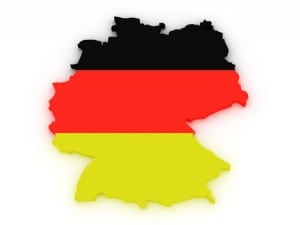
New Child Maintenance rules in Germany
There are new rules that apply to child maintenance in Germany from January 2015. In this our latest blog looking at international aspects of family law, our Head of International Family Law, Frank Arndt outlines the main features of the new provisions.
Düsseldorfer Tabelle
In Germany generally the parent who does not look after the child (the absent parent) is obliged to pay child maintenance. The amount depends on the income of the absent parent. All income resources are relevant and if the paying party is self-employed, the average income of the last three year is used.
Once the income is established the so called Düsseldorfer Tabelle is used by the Courts.
As a consequence the paying party’s allowance “sog. Selbstbehalt” increased from €1,000.00 to €1,080.00. If the paying party is unemployed the increase is from €800.00 to €880.00. This increase mirrors the amended table in SGB (“Hartz IV“), which also came into force on 1.1.2015.
However the devil lies in the detail. This increase has not lead to an increased the level of Child Maintenance, which everybody was hoping would be the result of the changes. Even after the 1st January the level has stayed as it was. This is because the Child Maintenance claim is linked to the so called “steuerliche Kinderfreibetrag” and the German Finance Department has not amended the tax regulation, yet. It is understood that next year the amendments might have passed the German Parliament.
Three Principles
Three principals of the Düsseldorfer Tabelle should be not ignored.
- Tax: Strictly speaking every parent has to take the Tax advantages as expected by the Tax Authorities and this also includes the so called Realsplitting (see BGH FamRZ 2007, S. 793 f; BGH FamRZ 2007, S. 882 f; BGH FamRZ 2007, 1303).
- Liabilities: Existing liabilities can reduce the level of income and might decrease the Child Maintenance claim. However, within § 1603 Abs. 2 BGB, there is a duty of the paying party to make an application for Insolvency and to use the general level of ringfenced allowance (see (BGH FamRZ 2005, 608; BGH FamRZ 2008, 497).
- Child Benefit: Child Benefit paid to the receiving party is not treated as an income resource. But other benefits like “Kinderzulagen/ Kinderzuschüsse zur Rente” in accordance with § 65 EStG; § 270 SGB VI might be treated differently (see BGH FamRZ 1981, 28, 29).
International child maintenance provisions
What the above rules and information shows is that the international aspects of Child Maintenance Calculations can be very complex. They are also different in each jurisdiction.
In Finland for example the Supreme Court confirmed in two judgements (KKO:2010:37 and KKO:2010:38) that the final consideration of the amount of child maintenance is made on an individual basis.
In Sweden the general rule is that the Child has the right to the same financial standard as their parent however generally the maintenance orders are compared to other countries in the EU very low, even if the paying party is a wealthy person.
International network
Paradigm Family Law has an experienced network of family law specialists who can assist you in your individual case wherever you or your children may live.
Contact
Paradigm Family Law have a team of experienced and highly recommended divorce lawyers to help guide you through the process of divorce, just waiting to hear from you.
If you would like more details on this or want to discuss your family law matter, please do not hesitate to contact Frank or Evelyn. Paradigm Family Law offers a free initial consultation with a top rated divorce lawyer and our fixed fee solutions cover financial proceedings from start to finish. You can call us on 01904 217225 or email us to info@paradigmfamilylaw.co.uk.

